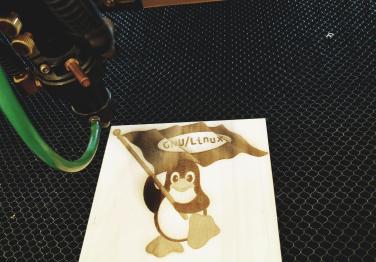This series of workshops, held monthly, will offer access to different free software tools that can and should make up the tool kit of a public, citizens' laboratory: Freecad, Inkscape, Gimp, etc.

This series of workshops, held monthly, will offer access to different free software tools that can and should make up the tool kit of a public, citizens' laboratory: Freecad, Inkscape, Gimp, etc. This is a series of workshops that in addition to offering the possibility of introducing the use of the tools, will try to document a number of processes with the aim of composing a guide of useful free tools for the carrying out of projects in laboratories. In an environment in which a critical approach to technology and the principles of learning by doing and sharing knowledge are adopted, free software is a natural ally.
WHY A SERIES OF WORKSHOPS ON FREE SOFTWARE?
Every field of work requires its own tools and ways of doing things. When we think of science, computing or architecture, as well as other fields, we see that traditional techniques and ways of doing things inherited from previous sources of knowledge are combined with computer-assisted tools that make it possible to extend the scope of these disciplines, at the same time making the most tedious technical work easier. This is evident, for example, in the complexity achieved by the architecture that uses CAD or in the carrying out of calculations in science using computation.
"Free software" is software that respects the freedom of users and the community. Broadly speaking, it means that users have the freedom to execute, copy, distribute, study, modify and improve the software. In other words, "free software" is a matter of freedom, not price.
Definition of free software in gnu.org
In a citizens' laboratory, a fablab or a makerspace, analogue and digital tools are also combined. Paradoxically, while the traditional part of these fields of knowledge and disciplines is transmitted, taught and learned in a natural way, the digital part depends in most cases on processes that use closed, proprietary and patented tools in which it is practically impossible to influence or, in many cases, even understand their operation.
However, we believe that the field of shared knowledge, exemplified by citizens' laboratories and the maker movement, derives in large part from the logic created in the open software and hardware communities and that it is therefore also an obligation to maintain this tradition in terms of the tools that are used.
Thus, this series of workshops aims to discuss the ethics of sharing knowledge at the same time that we learn to use the following digital editing tools based on free software.
